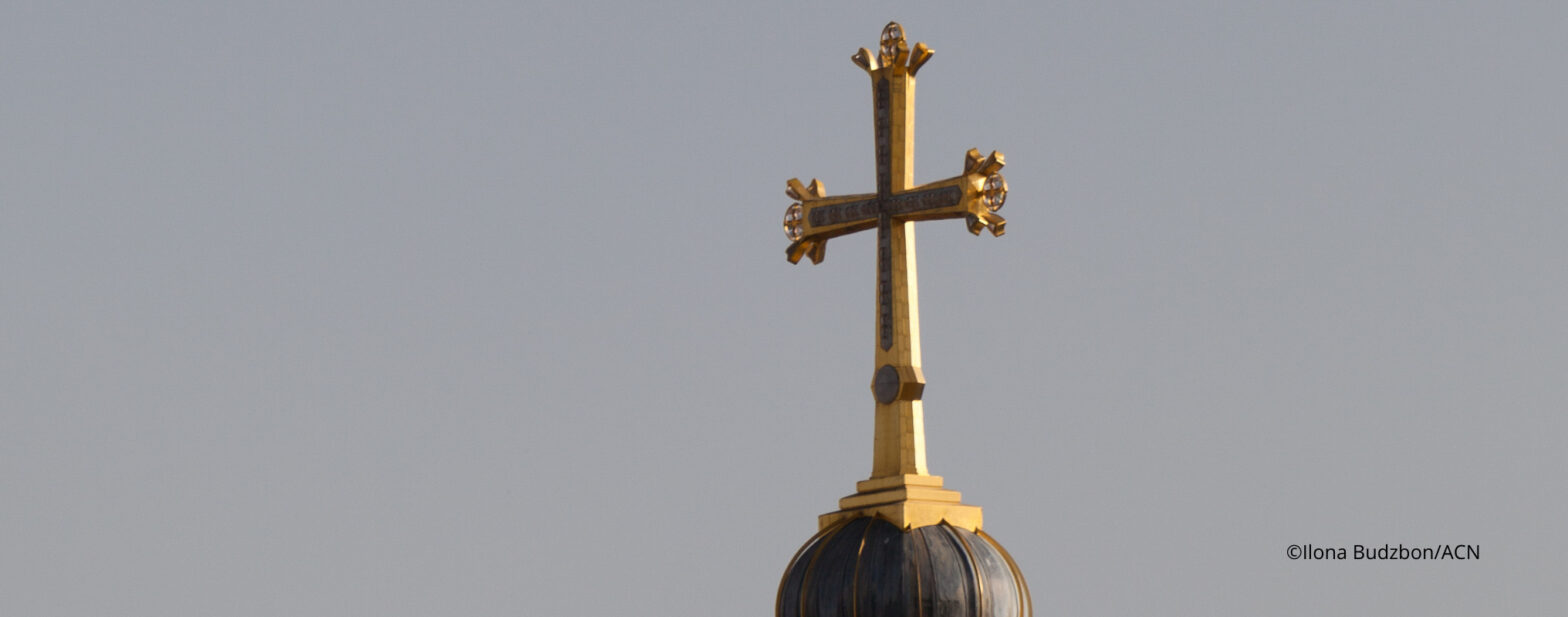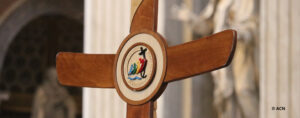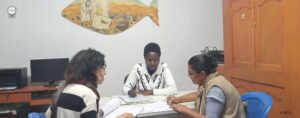The Holy Land’s Christians have suffered a “disturbing rise” in attacks including spitting, physical harassment, damage to property and cemeteries, and disruption of services. (Cover photo: The cross over the Duomo, Holy Sepulchre Church, Jerusalem.)
The findings are part of a report by the Jerusalem-based Rossing Center, called Attacks on Christians in Israel and East Jerusalem, which examined the increase in hostilities towards Churches and their members in 2023.
This included “a worrying increase in severe property and physical assaults” affecting communities in Jerusalem’s Old City.
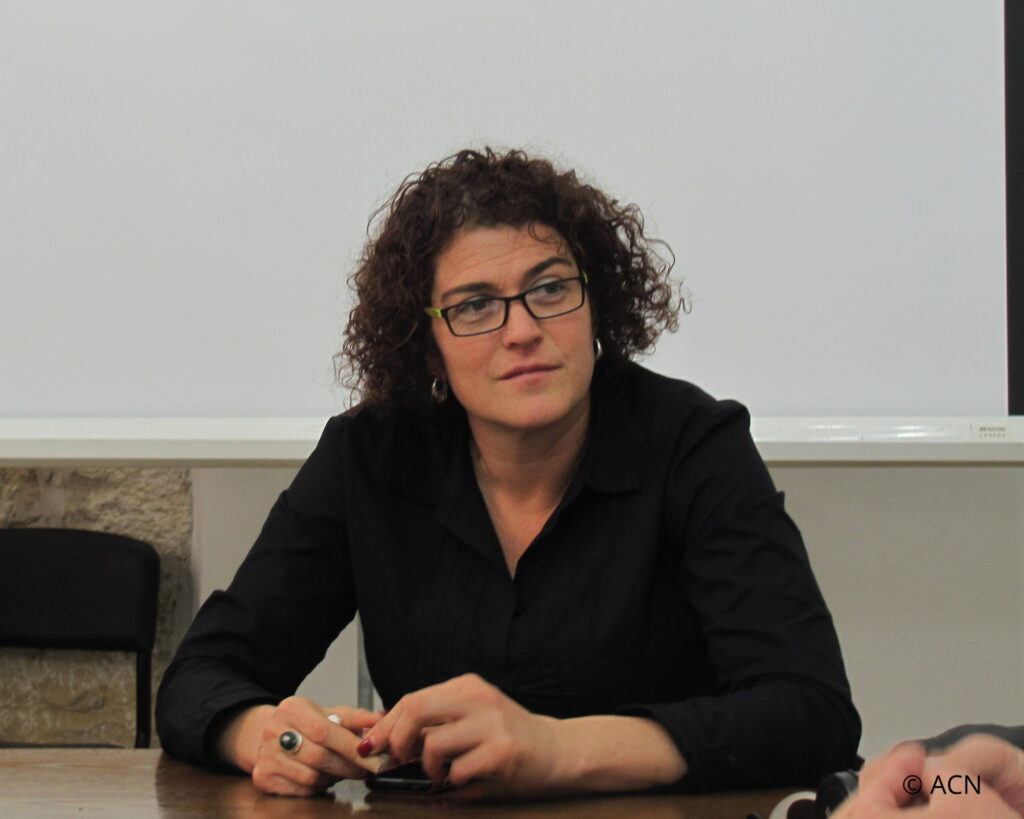
Speaking to Catholic charity Aid to the Church in Need (ACN), Hana Bendcowsky from the Rossing Center (photo) divided up the problems faced by Christians in the region into “smash” and “squeeze,” terms used by human rights observers.
“The ‘smash’ describes incidents such as the attack on the Church of the Flagellation, where a statue was smashed with a hammer,” she explained.
These violent attacks are mostly carried out by marginalized young ultra-Orthodox Jewish men with hardline-nationalist views, she added, stressing, however, that “even among the ultra-Orthodox such behaviour is not normative, the majority would not go into a church and smash a statue of Jesus.”
“And the ‘squeeze’ pushes members of the community away, it is incidents like priests being spat at or a nun being told to take off her cross when she goes to the hospital. The community is shaken, and it feels uncomfortable. You feel as though no one wants you—lay people don’t feel this so much as the clergy, but they are part of Israel and, they should feel comfortable in this homeland, and we should make sure they do,” she said.
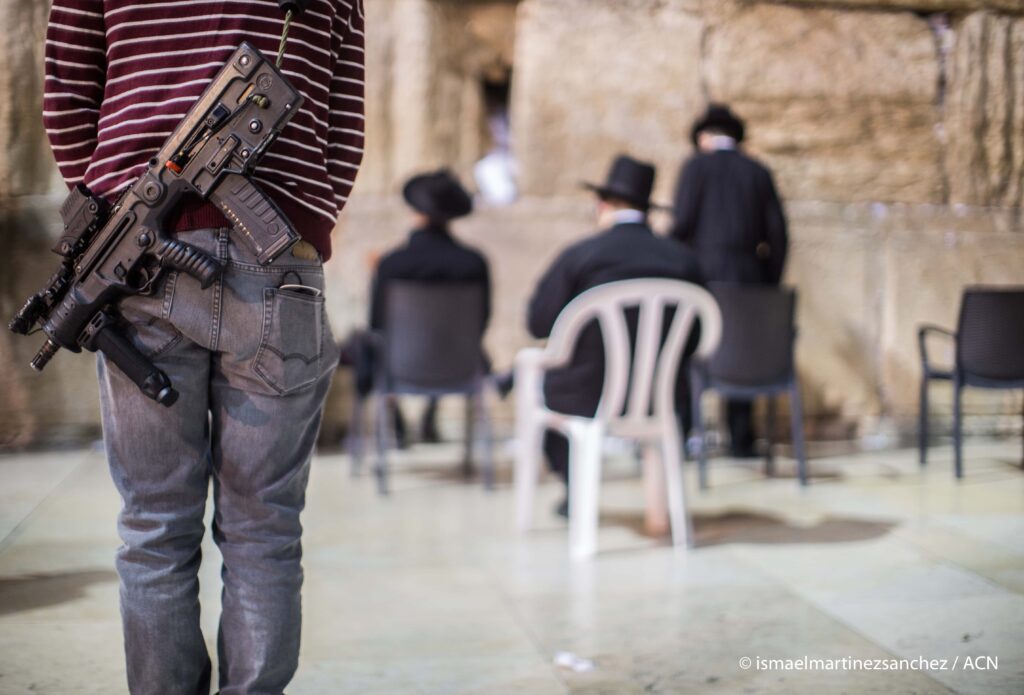
Ms. Bendcowsky added that unlike the physically violent incidents listed above, these cases of spitting or verbal harassment are carried out by “members of the ultra-Orthodox community, men and women, young and old. These could be your neighbours, you could see them playing with your children.”
Abbot Nikodemus Schnabel, of the Benedictine Dormition Abbey, in East Jerusalem, says that the spitting incidents, in particular, have become a daily occurrence. “Unfortunately, spitting harassment is part of my daily life. If I go out of my monastery, it is part of my reality. It is a tiny group, I call them the hooligans of religion. Of course there are many Jews who are really wonderful people, who support us and are very happy we are here, but the sad truth is that we have this phenomenon and it is not rare. As a monastery we have also had arson attacks, hate graffiti and broken windows, and it is growing and growing.”
Ms. Bendcowsky suggested that spitting has always been a problem, but modern technology has allowed it to be recorded, so there is more evidence.
Nevertheless, she believes that the 30 incidents noted last year probably only represent the tip of the iceberg.
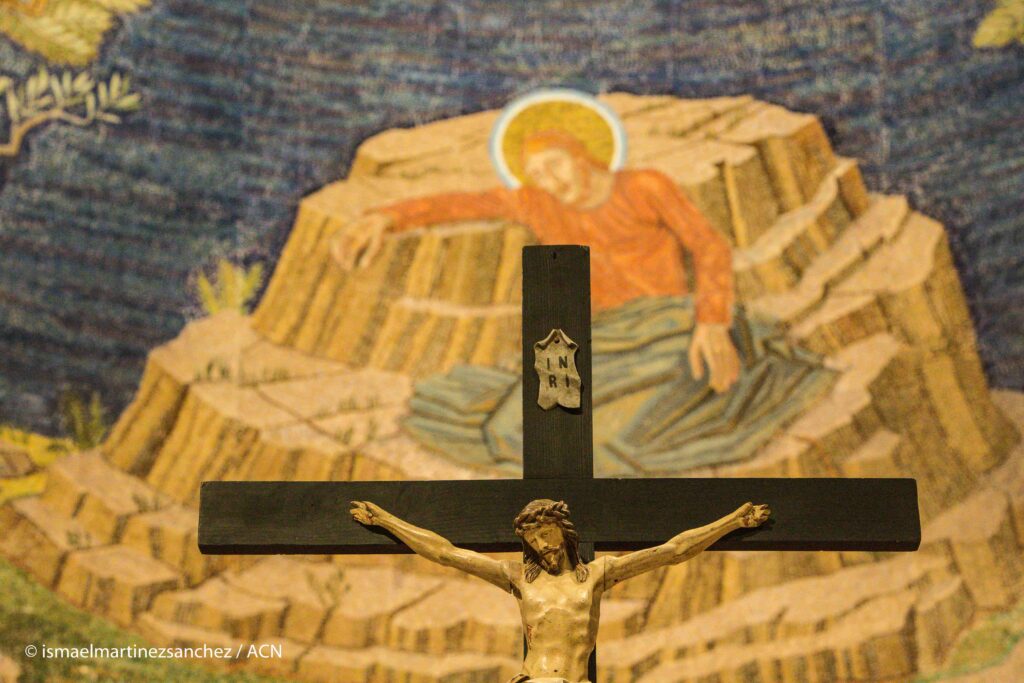
“We need to educate people—you don’t have to like the other people, but you don’t have to spit at them when you see them in the street. The Church has the strength to say it can hold its own, as it’s been here for 2,000 years, and say it can survive, but these events can push the laity away and cause them to leave.”
The Attacks on Christians in Israel and East Jerusalem report noted that “when police intervention took place, it was helpful.”
Police presence proved effective in ending the picketing of the Carmelite Monastery of Stella Maris, Haifa, by followers of controversial Rabbi Eliezer Berland. Groups of men would gather to pray loudly at the monastery’s gates, but two months of police at the site stopped the problem.
Ms. Bendcowsky paid tribute to officers but said more could be done: “The police are open to working with the Church and helping the community, but they still need to be more literate about Christianity and Christians.”
She added: “The Church needs courage to report these incidents and go to the police when they happen as the situation can be complicated and they aren’t always confident that reporting these events won’t negatively affect them.”
The Rossing Center report notes that rabbis have spoken out against attacks on Christians. Following spitting attacks on pilgrims in October 2023, the Sephardic Chief Rabbi Yitzhak Yosef stressed such actions have no place in Judaism and Ashkenazi Chief Rabbi David Lau stressed that spitting on Christians was against Jewish Law.
“An official statement from the rabbis is very important and can mean a lot to the Churches,” Ms. Bendcowsky said.
The Latin Patriarch of Jerusalem, Cardinal Pierbattista Pizzaballa, agreed, saying: “we need to talk to the religious institutions, but we have to do so carefully. The more we talk about this, the stronger they feel.”
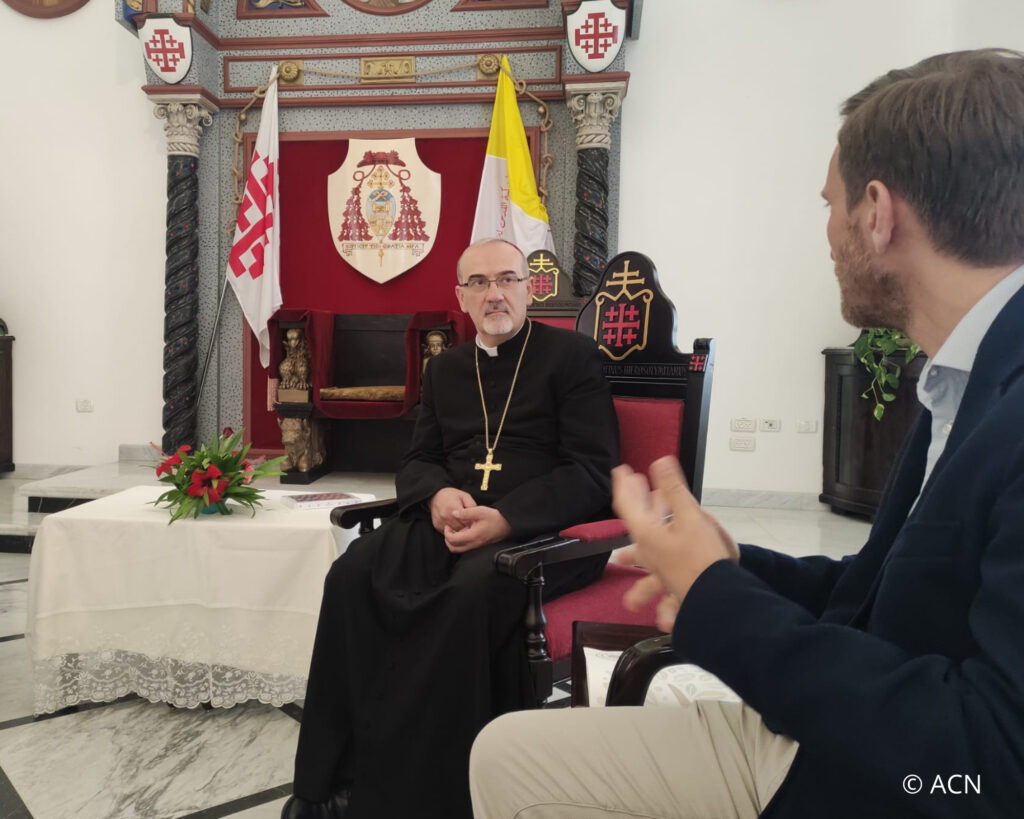
The Patriarch praised the Rossing Center for documenting these cases. “We need to know what is going on, the number of attacks, by whom, to give to the authorities. Even if they don’t do anything, they cannot say it is not happening.”
Over more than a decade, Aid to the Church in Need has supported the Rossing Center with different projects, including the “Develop Forgiveness, Overcome Hatred” programme which draws together young Jews, Christians and Muslims and helps them learn to live together.

